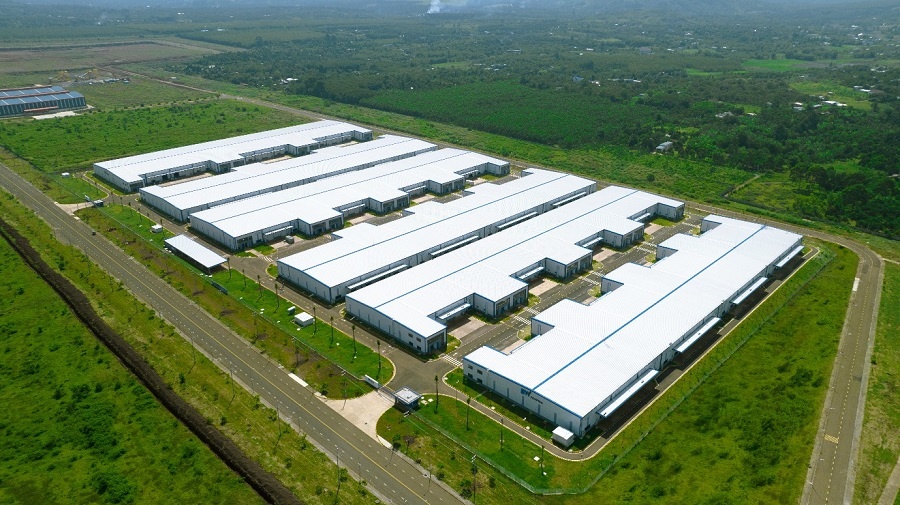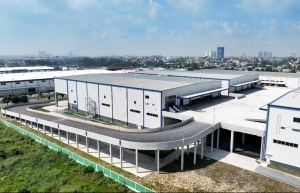Divestment an option in industrial real estate
 |
| Rebecca Trinh, BW head of Investment |
What are the reasons companies do a divestment?
The most common reason for divestment is to eliminate non-performing assets, in which the company doesn't have relevant resources to further develop. This means the longer they hold it, the more loss they will incur, so they decide to divest to optimize their operations.
Another reason is that either assets no longer align with the company business strategies, or the company changes ownership and the new owner wants to divest. New owners will do that to invest the new capital into other markets or other business lines. In other cases, some developers have a strategy to divest their fully leased property at a premium to recycle the capital for new developments.
Last but not least, the company may experience financial difficulty, the difficulty of accessing capital for production, servicing bank loans. As a result, they have to restructure their portfolio, and divest some to meet capital requirements.
Who are the potential buyers for this kind of transaction?
There are a couple of groups of potential buyers in this market. First, would be an industrial real estate sub-developer who wants to expand their market share. Second would be financial investors like PE (private equity), insurance companies, pension funds, who would like to include industrial and logistics real estate into their portfolio because these assets would provide resilience and stable income when they are fully leased out. The last group is the end-users. Usually, it’s manufacturing companies who would like to buy instead of leasing out the property for internal use.
Is there a checklist to complete before a divestment?
Every transaction will have a different angle to consider. However, it's important that the seller has an agent with an extensive network of potential buyers. For the developmental process to happen smoothly, the seller needs to prepare for it by considering the following key items:
- They need to make sure that the legal aspects of the assets are clear, which means the assets for sale must have a proper land use right certificate.
- The seller needs to separate the rights and financial liabilities of an asset into a single standalone company. It is easier to divest the asset in such a structure than to sell it in the companies with numerous business lines and financial liabilities.
- If the asset is in operation with tenants, the seller must make sure that they have an ownership changing clause in the contracts.
Once the seller takes care of all these issues, they reduce half of the time it usually takes to negotiate.
 |
| BW ready-built warehouse - Dau Day project |
What are the challenges that an investor may expect to have a successful transaction?
The success of a transaction depends on the experience and expertise of the seller. In many transactions, the sellers are individuals, manufacturing companies, or speculators that don't have full knowledge of the market, experience of the asset transfer, or the legal process. As a result, many limitations arise when determining the transaction value or the deal structures.
A time constraint could be a significant challenge for the transaction. Sometimes, the seller needs the money fast or their assets are being held in the bank or in the public auction. This leaves the timeline to evaluate the assets or the due execution tight. Sometimes, it's impossible to carry out this kind of transaction.
Pricing, which is very important, is time consuming for negotiation. However, the experience to provide and to accept alternative options in payment or pricing conditions is very helpful because it helps to bridge the gap in price expectations. For example, they can defer a payment’s schedule until a certain tax legal risk is significantly mitigated.
Is pricing the most critical factor above everything else?
Price is definitely crucial, but based on BW’s experience dealing with many sellers of different backgrounds, we notice that there is something more important than pricing. It is how much effort the seller is willing to make to get the transaction done. A non-experienced seller would not be able to understand the conditions or the concerns of the buyer. This is usually as they probably don't have the patience to address the concern. However, at BW, with our experience, we can provide professional advice to our sellers upfront. We can present them with the pros and cons of different deal structures, and we only negotiate a key concern to accelerate the entire process.
In conclusion, divestment is an option for many investors when some assets are not performing up to expectations. It's important to have a balance between pricing and the mutual understanding between the sellers and buyers when a divestment is executed.
At BW, with our experience in screening and executing many transactions in this nature, we understand that this kind of transaction involves numerous difficulties, and we are honoured to offer helpful advice for both the sellers and buyers to get the transaction done smoothly.
 | IZ land leasing causes concerns for businesses Land lease in industrial zones is a major concern of manufacturers investing in Vietnam. This short Q&A with Hao Tran, head of Legal at BW, provides a legal perspective. |
What the stars mean:
★ Poor ★ ★ Promising ★★★ Good ★★★★ Very good ★★★★★ Exceptional
Related Contents
Latest News
More News
- Construction firms poised for growth on public investment and capital market support (February 11, 2026 | 11:38)
- Mitsubishi acquires Thuan An 1 residential development from PDR (February 09, 2026 | 08:00)
- Frasers Property and GELEX Infrastructure propose new joint venture (February 07, 2026 | 15:00)
- Sun Group led consortium selected as investor for new urban area (February 06, 2026 | 15:20)
- Vietnam breaks into Top 10 countries and regions for LEED outside the US (February 05, 2026 | 17:56)
- Fairmont opens first Vietnam property in Hanoi (February 04, 2026 | 16:09)
- Real estate investment trusts pivotal for long-term success (February 02, 2026 | 11:09)
- Dong Nai experiences shifting expectations and new industrial cycle (January 28, 2026 | 09:00)
- An Phat 5 Industrial Park targets ESG-driven investors in Hai Phong (January 26, 2026 | 08:30)
- Decree opens incentives for green urban development (January 24, 2026 | 11:18)

 Tag:
Tag:





















 Mobile Version
Mobile Version